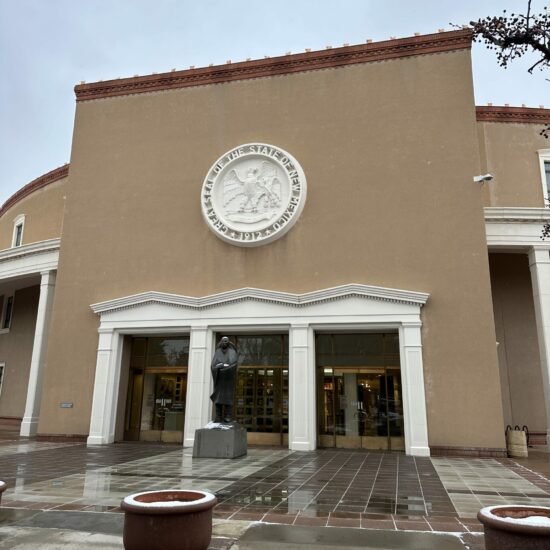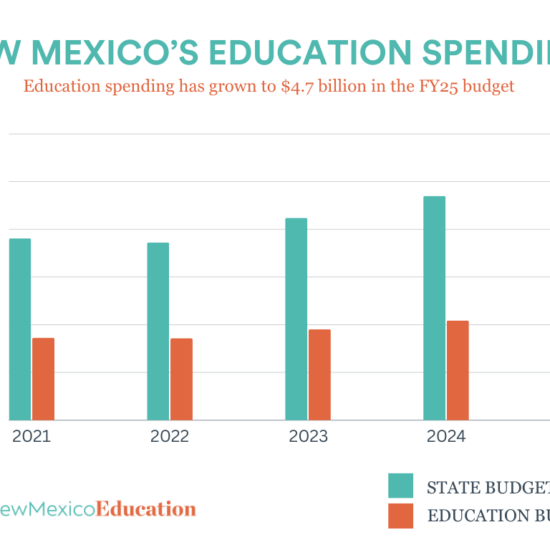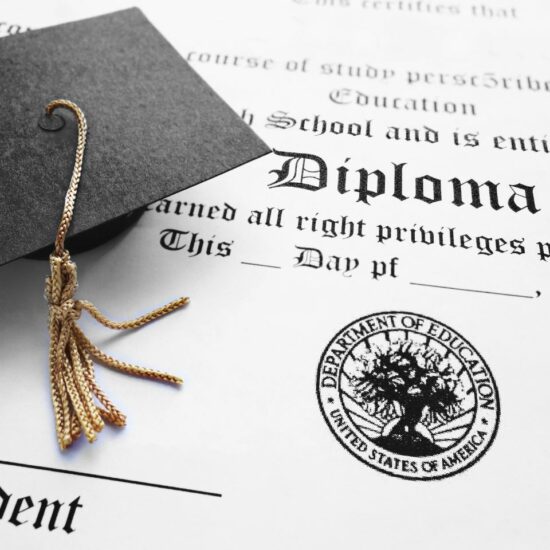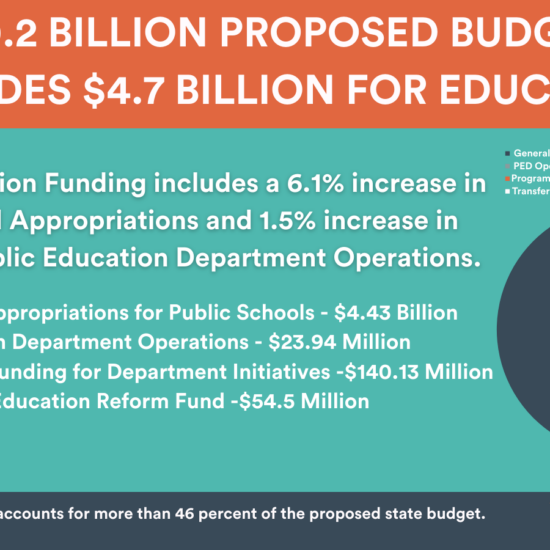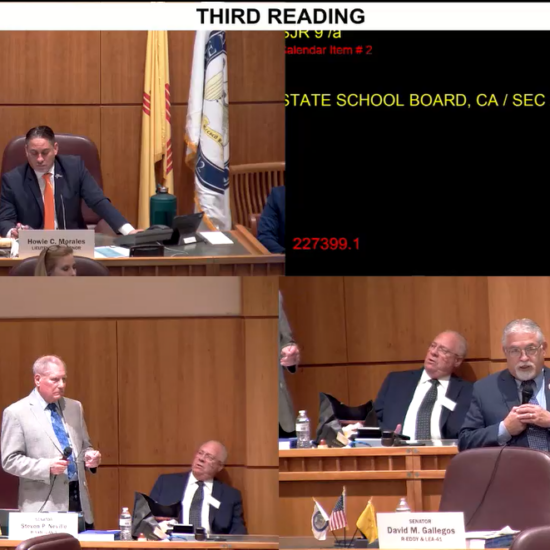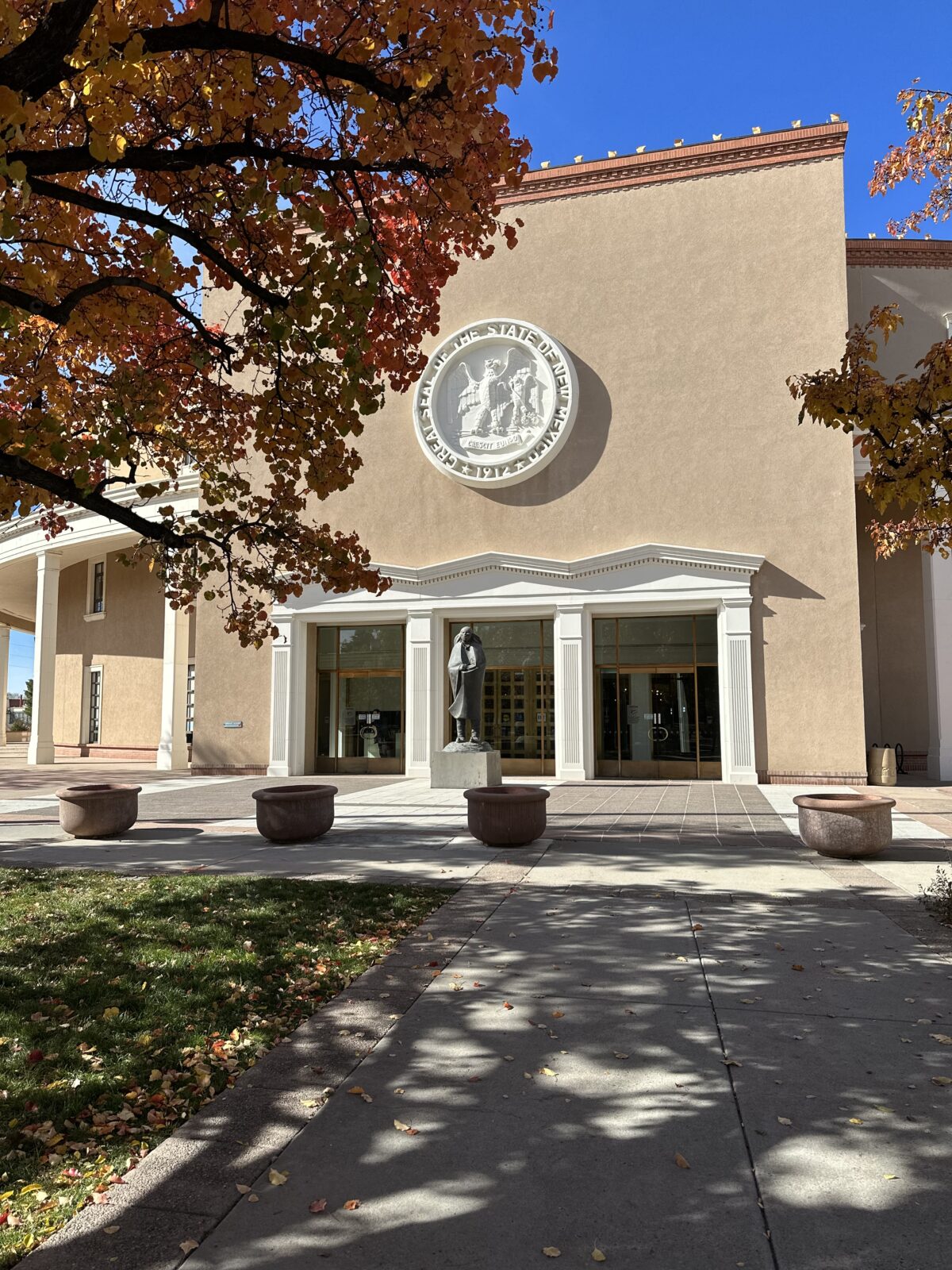
The 2024 Legislative Session in New Mexico ended at noon on February 15 with two education bills signed into law and three others awaiting the governor’s signature or veto.
Along with the two new laws, one of which is the state budget, three other bills affecting education passed both chambers and are currently awaiting a signature from the governor. In all, 777 bills were proposed this legislative session, with 54 of those relating to education. In a 30 day legislative session, only bills dealing with the state budget, or messaged by the Governor are eligible to be debated. Of the 54, only 21 education bills were budget related and three were green lit by the governor to be debated. Of those 24, only these five were approved by both chambers of the legislature.
The lack of education initiatives in this legislative session comes after the state celebrated what they called a four percent increase in student reading proficiency. This celebration was based on data from the 2022-2023 school year showing that only a third, 34 percent, of New Mexico students can read at grade level. Literacy data was not reported consistent with the previous year’s data and should not be compared. . While student literacy rates grew in state data, the state glossed over the fact that students saw a one percent slip in mathematics proficiency. Over the last year, the legislative education study committee has been looking into ways to address these proficiencies, especially in light of the 2018 landmark Yazzie/Martinez decision, which said the state was failing to provide an “adequate” education to its students, which is a requirement under Article XII, Section I of the New Mexico State Constitution.
Just as the 2024 legislative session began, in her state of the state address, Governor Michelle Lujan Grisham said that this time would be used to address crime in the state.
In her address, the govenror requested $30 million in capital funds to build a statewide literacy institute to help improve student reading proficiency, funding she received in the budget. She also told legislators that she wanted to see a statewide effort to increase every school district’s instructional time to at least 180 instructional days. Rebuking this request, in a budget amendment, legislators placed a restriction on the executive branch ordering that the NMPED cannot use their budget to implement any rule related to requiring 180 days of instruction The governor could line item veto this language when she approves the budget.
Education Bills Signed into Law
General Appropriation Act of 2024, House Bill 2, makes general appropriations and authorizes expenditures by state agencies. For education, the budget appropriates $4.7 billion for public education. This bill was sponsored by Rep. Nathan Small (D – Las Cruces).
School Graduation Requirements, House Bill 171, changes graduation requirements for students entering ninth grade in the 2025-2028 school years. The bill eliminates requirements for Algebra II, advanced placement, honors, and dual credit courses, which were previously mandatory for graduation. Instead, the legislation emphasizes flexibility by allowing students to choose from a broader range of courses, including those in Career Technical Education, internships, or project-based learning. This bill was signed by the governor on February 9, it was sponsored by Rep. G. Andres Romero (D – Bernalillo), Rep. Ryan Lane (R – San Juan), and Senator Mimi Stewart (D – Bernalillo).
Education Bills Awaiting a Signature
Public School Capital Outlay Grants, House Bill 207, requires the Public School Capital Outlay Council to provide grants for lease assistance from the Public School Capital Outlay Fund to public charter schools, allowing funds to be used for construction of buildings and school sites. This bill was sponsored by Rep. Joy Garratt (D – Bernalillo) and passed the House with a 64-1 vote and unanimously in the Senate.
School Local Share Adjustment Waiver, Senate Bill 76, relates to public school capital outlay by amending local share adjustment waiver requirements for school districts. This bill was passed by the Senate with a 38-0 vote and was sponsored by Sen. Mimi Stewart (D – Bernalillo).
School Board Training, Senate Bill 137, increases mandatory training for local school boards and governing bodies of charter schools and requires training in certain areas including budget and the board’s role in improving student achievement. New school board and governing board members must complete ten hours of training. Returning members must complete five hours of annual training. . This bill restricts a school board from firing a superintendent between a school board election and 60 days after the new board has taken office. The bill also amends the campaign reporting act as it applies to local school board candidates requiring that all school board candidates publicly report their campaign contribution. Additionally, it requires local school board or governing body meetings to be webcast and archived. This bill was sponsored by Sen. Mimi Stewart and Sen. William Soules (D – Dona Ana), it passed the Senate with a 30-9 vote, and in the House with a 42-17 vote.
While these five bills managed to receive approval of both chambers, 30 education bills were not heard and 18 died along the way.


